by successfulbob | bird photography, Lumix GH4, photography, photography education, wildlife photography
So you want to see the befores?
I received a request to show the images I’ve been playing with the last couple of days how they looked pretty much straight out of the camera. I can do that…
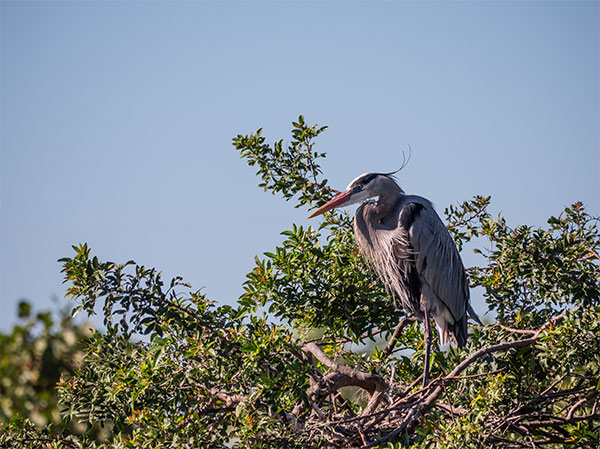
Great Blue Heron at the Venice, Florida Rookery. Art Photo here
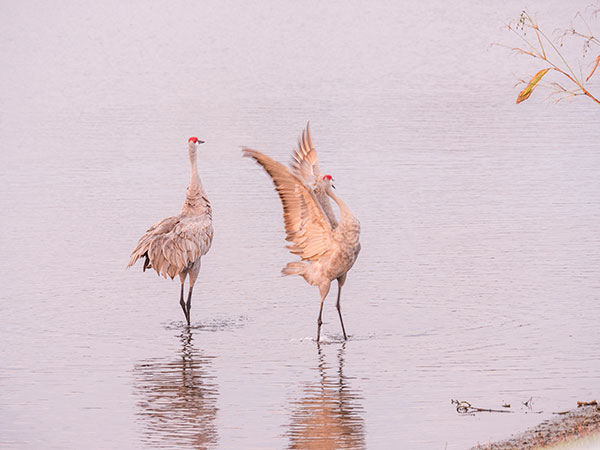
Sandhill Cranes, Sarasota Florida.

Sandhill Cranes behavior images. Art Photos here
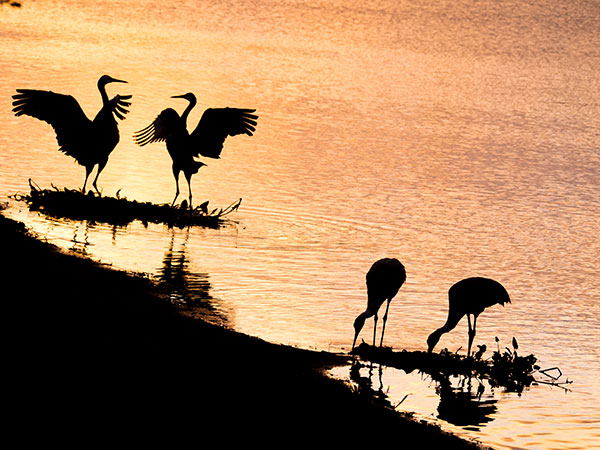
Sandhill Cranes at dawn Sarasota, Florida. Link to post here
Photo gear used was the Lumix GH4 and the 100-300mm Lumix G Vario f4-5.6 lens. A faster lens would have been better but the reach of this is quite good (200-600mm 35mm equivalent) At just under $500 this is a pretty nice lens to chase down waterfowl.
Yours in Creative Photography, Bob
by successfulbob | bird photography, Lumix GH4, Lumix Lounge, photography, wildlife photography
This time I went to the rookery in Venice Beach about a half hour south of Sarasota. Apparently I am a little area for the big nesting season but there were a few Great Blue Herons, some Anhingas and some other smaller birds in the area. Not the ideal time of day to shoot but with a little imagination, a couple textures and some Photoshop Blend Modes I might be on to a little something here…
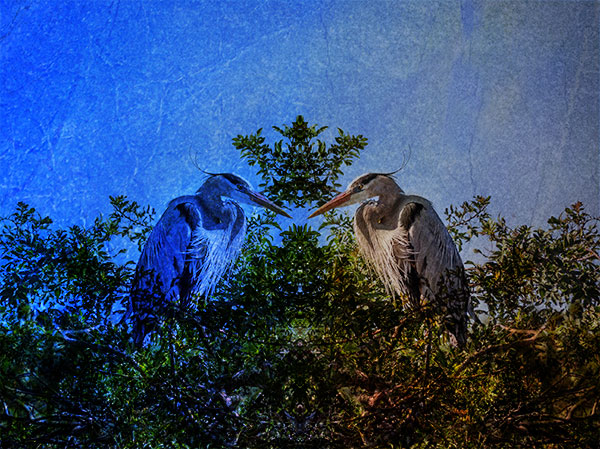
Playing around with the concept night and day… Great Blue Heron from Venice Beach Rookery.
Original image captured with Lumix GH4 and the Lumix Vario 100-300mm lens.
Back out to shoot some more… Later!
Yours in Creative Photography, Bob
by successfulbob | bird photography, photography, photography education, wildlife photography
When photographing birds I always try to spend enough time with them to learn some of their habits and behaviors. Spending time allows you to start to predict different things that will set your images apart. The prediction will be the difference between going, “WOW that was pretty cool!” and wishing you had been able to capture the image and getting the moment in your camera.
Once you start to study the birds behavior you start to see tell tale movements that will cue you in on the bird getting ready to take off or stretch or any number of things that will lead to more interesting images than a simple bird at rest. Here’s a couple examples of my Sandhill Cranes in motion.
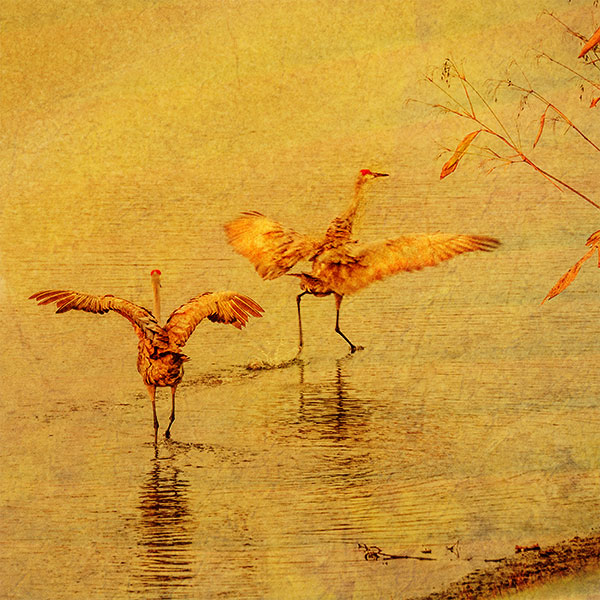
Sandhill Cranes in Sarasota, Florida.
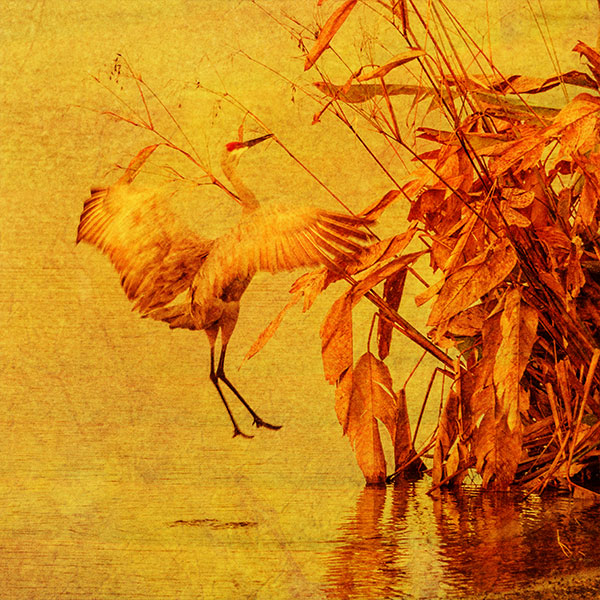
Here the Crane is reaching for some seeds at the top of the vegetation.
Of course, once I get the raw photos it’s time to apply my ‘Photo-Synthesis’ technique to add texture, color and depth to the images. I use Photoshop. Add layers of texture and change Blend Modes to create the look.
Check back one post to see yesterday’s Sandhill Cranes in silhouette and more ideas on photographing birds in nature including equipment used and getting set.
Yours in Creative Photography, Bob
by successfulbob | bird photography, Lumix GH4, Lumix Lounge, photography, photography education, wildlife photography
I’ve always had a hankering to photograph birds… Not sure where it comes from. Perhaps the thought of the freedom of being able to fly away at a moment’s notice. I know I always enjoyed going fast. Loved windsurfing and the freedom that gave… It was on a par with flying. in fact sailing uses the same physics as flying. But, I digress.
Went out to photograph the Sandhill Cranes this morning.
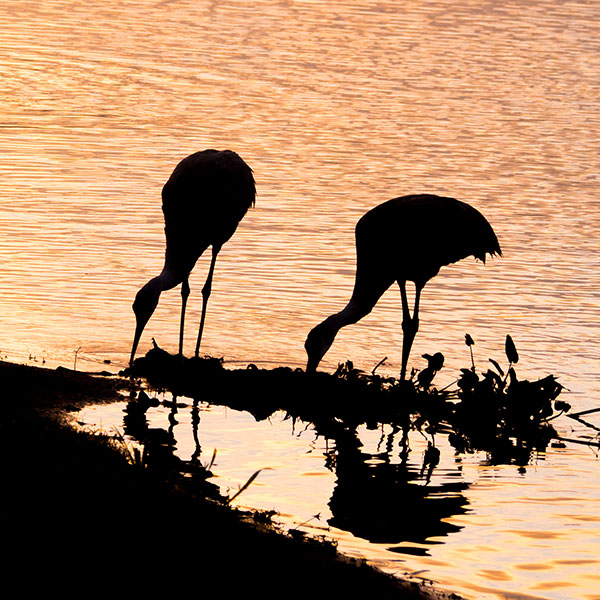
Feeding as the sun rises. Sandhill Cranes in silhouette in Sarasota, Florida
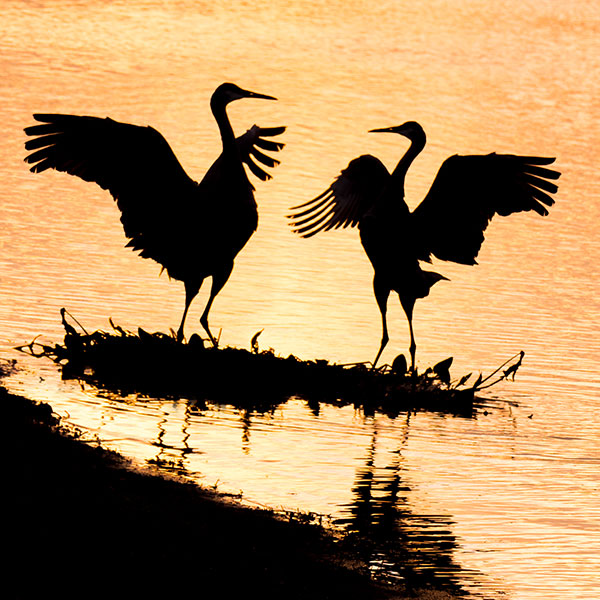
A couple cranes dancing with each other in the sunrise in silhouette. I often look
for a bit of behavior other than feeding or standing to add some action to the image.
Tips on photographing birds…
Arrive about 45 minutes to 1 hour before sunrise. The birds will start to become active a little after first first light. If they see you coming in they will tend to split.
Try to set up so you are downwind of the birds or at an angle to the wind so they fly across your field of view. They are going to take off flying into the wind. If you are upwind you’ll get lots of bird butts.
Try have the sun behind or slightly to the side of you for best light on the subject. (or prepare to work with silhouettes as I’ve done here)
Of course a long lens is very helpful. For these I used the Lumix GH4 and the 100-300mm Lumix G Vario f4-5.6 lens. A faster lens would have been better but the reach of this is quite good (200-600mm 35mm equivalent) At just under $500 this is a pretty nice lens to chase waterfowl with…
More bird stuff tomorrow.
Your in Creative Photography, Bob













